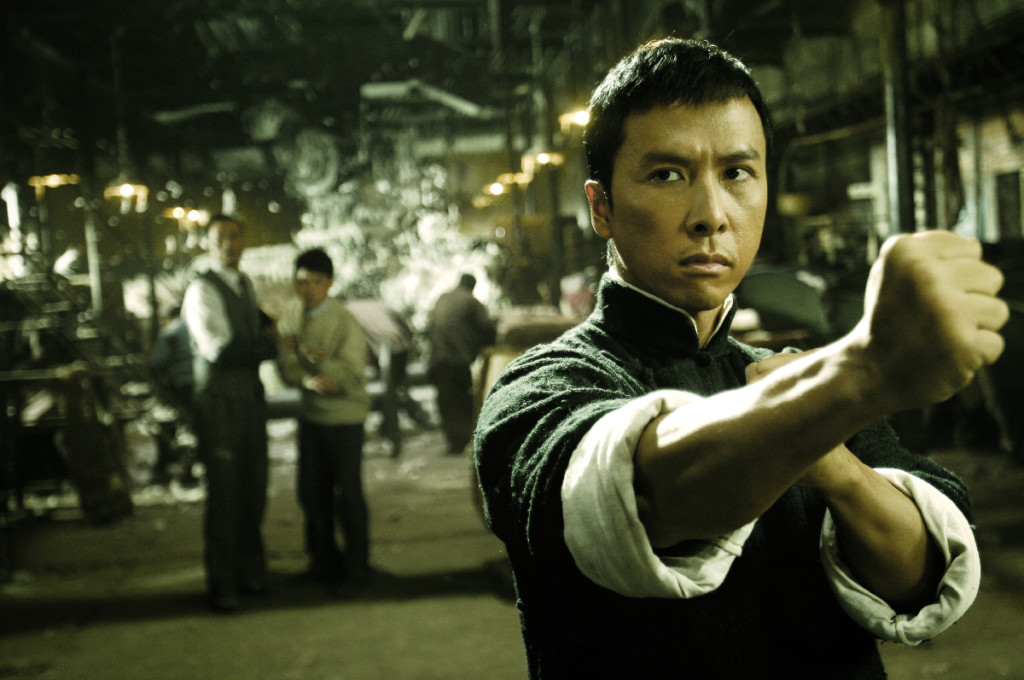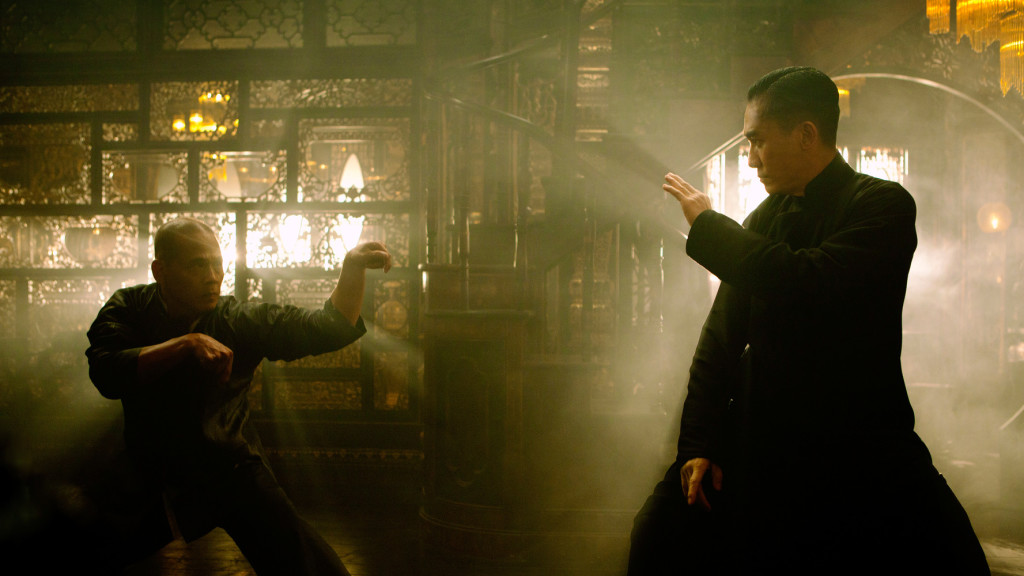Last updated on April 15, 2014
The Grandmaster (US Version) – That popular criticism “style over substance” comes to mind when talking about The Grandmaster. Critics mostly fawned over it, while more than a few of us left the film scratching our heads at what just happened? I’m incredibly glad I did not watch this in the theater, because I cannot imagine my disappointment at this seemingly stellar product (and no, it’s got nothing to do with that arbitrary Martin Scorsese name-drop in the title). What happened to make this film pretty terrible comes down to a number of different factors.
Your first indication that something’s wrong should come from that most hated of names for Asian film fans – Weinstein. The Weinsteins, in Miramax as in now, often cut many of their import films to bits in an attempt to appeal to American audiences. Often, these attempts fail, making an incomprehensible mess of many rather stellar movies.
The Grandmaster is once such casualty; originally 130 minutes long, the American cut somehow removes twenty minutes of footage, explains the political context through on-screen text segments, and adds voice-over narration to fill in the historical gaps of Ip Man (the main character) and his life. As you can imagine, this hinders the final product significantly; at least from most sources who saw the original release in Asian countries, they claim it superior and I see no reason to say otherwise (even if the director says he wanted to cut it this way – seriously, no, you said that under contractual obligation and we all know it).
Ip Man’s been the latest craze in kung-fu canonization, beginning with the movie called (approrpiately) Ip Man. Donnie Yen played the role as expected: Ip Man the crazily skilled martial artist/family man who represents that strange ideal of calmness and brutality in equal measure. That film mostly played to the actual events within the biopic format, with obvious exaggeration (and fighting and stuff!)to make Ip Man seem more super hero than ordinary sifu. No harm, no foul – the real Ip Man’s life is not as interesting as films would lead you to imagine anyway, and what works for real life does not always function well on a film reel.
On the other hand, The Grandmaster doesn’t seem to care much at all about being a biography or even about Ip Man. It basically creates its own little world where kung-fu masters meet in a brothel and discuss philosophical concepts with each other while fighting…for the first half, anyway. Ip Man sorta, maybe, falls in love with a woman who is not his wife. She is crazy, and has a blood vendetta against a man who killed her father (and she’s also good at kung fu too). Ip Man is in the story, of course, but he’s obviously NOT the focus at all; rather, The Grandmaster wants to explicate the underpinnings of this martial art. Concepts like duty and honor come up often, as well as the specific moves/stances of various styles and what they represent. Wrap this in a shell of forbidden love and non-linear stream-of-consciousness structure, and here lies The Grandmaster.
So yes, in a phrase: the trailer totally misleads the audience into what they will see. Think more “drama with kung fu” than “kung fu movie”! The director, Wong Kar-Wai, obviously uses the visual style (very cool looking) and kung fu to represent the dynamics of many relationships. Between master and student, between schools, and between those in love, you sorta see what they were looking to accomplish. No doubt about it, The Grandmaster looks absolutely beautiful, dripping with stylistic flourishes and allowing the plot to unfold within fights rather than dialogue – it’s hard to get angry at fight scenes coordinated by Yuen Woo-ping, after all. Still, the same awesome looking context-less fights that begin the film are copied throughout, and once you’ve seen the first visual tricks you’ve seen them all. What’s being conveyed by each scene isn’t that clear, as you might expect from a butchered film.
Unfortunately, this American Cut feels like the cinematographer was given free reign to make a bunch of beautiful shots, and you need to look really hard to figure out what happened. The twenty minutes of missing footage probably meant a lot, because the whole plot progression turns into a total mess. I feel like whatever the characters said didn’t necessarily translate all that well either, and probably never could. Who wants to know all the hand positions of Hung Gar? Anybody? What about Razor, and why the heck is he in the film at all? What relevance does any of this provide to the film’s central themes? When did Gong Er become the main character? Heck if I could tell you.
It starts out fine, but once you lose the chronology AND text pop-ups tell you about all the important events in Ip Man’s life, you know that some important scene suddenly disappear. Then you end up in a flashback for some reason. An important character dies in a text box rather than, you know, visually. Seriously, the attempt to relay the Chinese cultural situation at Ip Man’s time brings down the whole film, and it’s not even important to the film’s themes so why is any of this information in here?
The biography format showcases how little interest Wong Kar-Wai had in the source material at all. Ip Man literally turns from main characters to side character at the end of the film as Gong Er, imagined forbidden love interest, comes to the fore for a whole half hour or so. Why? Who could know! Her character arc comes to a close, while Ip Man turns from “Grandmaster” to “cipher for the director’s themes of regret and loss”. Why not just remove the whole Ip Man thing altogether? If you’re coming into this experience with the expectation that something historical might happen, don’t fool yourself.
Look, I can stand this sort of “impressionist” film-making style if presented well. When the story comes together in such post-modern efforts (think The Usual Suspects or Memento), such works turn into memorable experiences that still succeed despite their unorthodox approach. The Grandmaster, on the other hand, felt like a huge piece of pretentious fluff with kung-fu added onto the framework to sell to a major audience. Add further the deleted scenes/recutting of the film to appeal to “Western” audiences, and the whole enterprise turns to crap.
In the end, then, I imagine expectations play a lot into my evaluation of The Grandmaster’s US Version. If you’re up for a strange new form of biopic, then this must be interesting for you. Maybe I personally need a second viewing of the original cut (The “Chinese Cut”, so called) to make a real critical evaluation, and I suppose that is true enough. But, as a review of the US version, it’s too disjointed and unfocused for my taste.
Here’s to hoping I can find a copy of the original!


